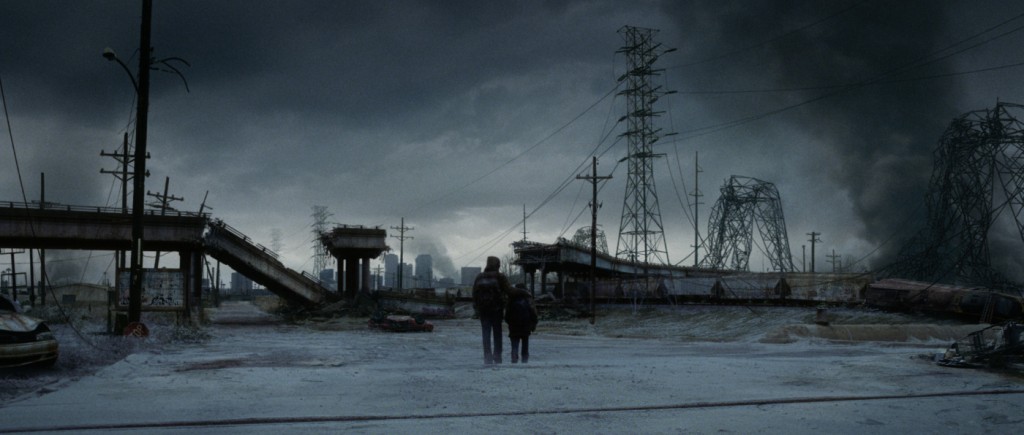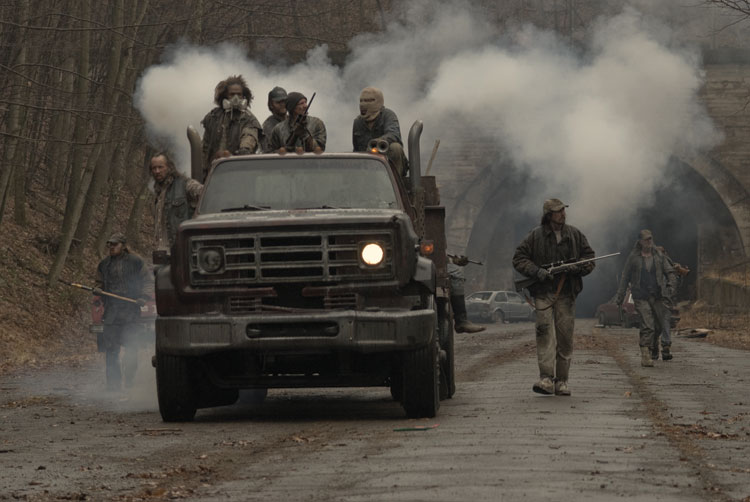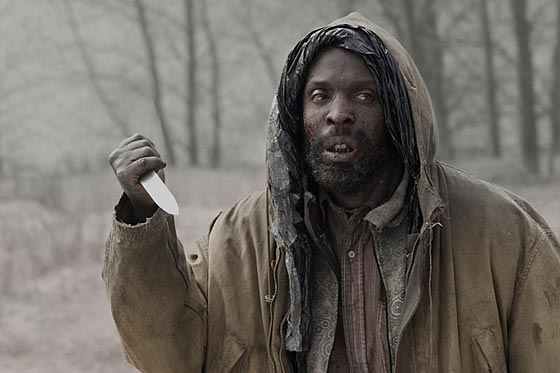As you read the novel you will be required to respond to the instructed parts assembled below. The overview is designed to serve as a thorough review for the literary component of the final exam. Be careful to respond to the specific instructions for each part. The overview, due on DAY 15, is valued as a performance grade.
PART 1 Write your response to each of the following questions:
1. Discuss when the inciting moment in the story is introduced; what appears to be the dramatic question?
2. What does the brief encounter with the man struck by lightning teach the boy?
3. What did the protagonist do with the picture of his wife; what does his action seem to indicate about his attitude? What happened to his wife?
4. The man’s greatest asset is his determination; how is he determined?
5. What horrific event occurs in the following description: He dove and grabbed the boy and rolled and came up holding him against his chest with the knife at his throat? What Impression does this event leave on the boy?
6. The boy had fallen. He dropped the armload of blankets and the tarp and went back and picked him up. He was already shivering. He picked him up and held him. I’m sorry, he said. I’m sorry. How does the preceding passage reveal the basic lesson of compassion; why are we compassionate? Do you believe that compassion is a learned behavior or is it innate?
7. Describe the three most horrifying images conveyed to you through the novel.
8. Describe the three most beautiful images conveyed to you through the novel.
9. The protagonist discovers a sexton on the sailboat, why does he regard it with such consideration and ultimately restores it back to its secure place?
PART 2 Ten passages from the novel follow. Select FIVE of the passages to respond to indicating the event and what you understand to be important about the conversation.
1. I was crying. But you didn’t wake up.
I’m sorry. I was just so tired.
I meant in the dream. (183)
2. There are other good guys. You said so.
Yes
So where are they?
They’re hiding.
Who are they hiding from?
From each other. (184)
3. I always believe you.
I don’t think so.
Yes I do. I have to. (185)
4. The men poured gasoline on them and burned them alive, having no remedy for evil but only for the image of it as they conceived it to be. (188)
5. When your dreams are of some world that never was or of some world that never will be and you are happy again then you will have given up. Do you understand? And you can’t give up. I won’t let you. (189)
6. All of them wretchedlooking beyond description. Their breath steaming softly. They crossed the bridge and continued on down the road and vanished one by one into the awaiting darkness. (195)
7. Do you think that your fathers are watching? That they weigh you in their ledgerbook? Against what? There is no book and your fathers are dead in the ground. (196)
8. The boy said: If we had the little baby it could go with us.
Yes it could.
Where did they find it? (200)
9. I think maybe they are watching, he said. They are watching for a thing even death cannot undo and if they do not see it they will turn away from us and they will not come back. (210)
10. Look, whatever is up there it’s better to know about it than to not know. (210)
PART 3 The following questions represent analysis, application, synthesis and/or evaluation skilled responses. Respond to each of the questions listed.
1. Cormac McCarthy has an unmistakable prose style. What do you see as the most distinctive features of that style? How is the writing in The Road in some ways more like poetry than narrative prose?
2. Why do you think McCarthy has chosen not to give his characters names? How do the generic labels of “the man” and “the boy” affect the way in which readers relate to them?
3. How is McCarthy able to make the post-apocalyptic world of The Road seem so real and utterly terrifying? Which descriptive passages are especially vivid and visceral in their depiction of this blasted landscape? What do you find to be the most horrifying features of this world and the survivors who inhabit it?
4. McCarthy doesn’t make explicit what kind of catastrophe has ruined the earth and destroyed human civilization, but what might be suggested by the many descriptions of a scorched landscape covered in ash? What is implied by the father’s statement that, “On this road there are no godspoke men. They are gone and I am left and they have taken with them the world,” [p. 32]?
6. McCarthy envisions a post-apocalyptic world in which “murder was everywhere upon the land” and the earth would soon be “largely populated by men who would eat your children in front of your eyes” [p. 181]. How difficult or easy is it to imagine McCarthy’s nightmare vision actually happening? Do you think people would likely behave as they do in the novel, under the same circumstances? Does it now seem that human civilization is headed toward such an end?
7. The sardonic blind man named Ely who the man and boy encounter on the road tells the father that, “There is no God and we are his prophets” (p. 170). What does he mean by this? Why does the father say about his son, later in the same conversation, “What if I said that he’s a god?” (p. 172) Are we meant to see the son as a savior?
8. The Road takes the form of a classic journey story—a form that dates back to Homer’s The Odyssey. To what destination are the man and the boy journeying? In what sense are they “pilgrims”? What, if any, is the symbolic significance of their journey?
9. McCarhy’s work often dramatizes the opposition between good and evil, with evil sometimes emerging triumphantly. What does The Road ultimately suggest about good and evil? Which force seems to have greater power in the novel?
10. What makes the relationship between the boy and his father so powerful and poignant? What do they feel for each other? How do they maintain their affection for and faith in each other in such brutal conditions?
11. The man and the boy think of themselves as the “good guys.” In what ways are they like and unlike the “bad guys” they encounter? What do you think McCarthy is suggesting in the scenes in which the boy begs his father to be merciful to the strangers they encounter on the road? How is the boy able to retain his compassion—to be, as one reviewer put it, “compassion incarnate”?
12 The father tells his son he must go on in order to “carry the fire.” When the boy asks if the fire is real, the father says, “It’s inside you. It was always there. I can see it” [p. 279]. What is this fire? Why is it so crucial that they not let it die?
13. Why do you think McCarthy ends the novel with the image of trout in mountain streams before the end of the world—”In the deep glens where they lived all things were older than man and they hummed of mystery” [p. 287]. What is surprising about this ending? Does it provide closure, or does it prompt a rethinking of all that has come before? What does it suggest about what lies ahead?
PART 4 Consider the quote about faith that you have previously selected or use one of the quotes below to associate your understanding of the denouement of the novel. Explain how the quote relates to your perspective of the novel by using at least two specific examples from the story.
Faith: not wanting to know what is true.
Friedrich Nietzsche
Faith is a passionate intuition.
William Wordsworth
Faith consists in believing when it is beyond the power of reason to believe.
Voltaire
Doubt Is a pain too lonely to know that faith is his twin brother.
Khalil Gibran





